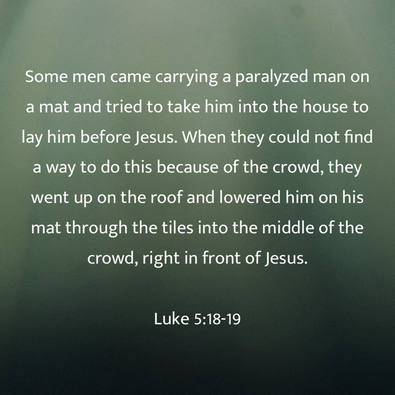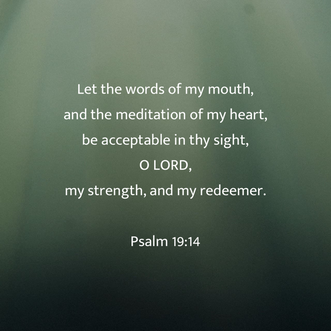|
Good morning!
We're so glad you decided to join us today!
When we meet in person, we share our joys and concerns. Take some time to think about your past week. If you have any prayer requests, you can add them as a comment to this post. When you are ready, use the prayer below (source) to get started.
Father, we thank You for Your spirit-inspired word. Thank You for the ones before us who surrendered to Your voice and obediently recorded Your words through personal encounters with You. Holy Spirit, we ask that You come and have Your way in our hearts and that if there is even one doubt in our minds about the validity of Your Scriptures, that You would illuminate Your holy truth. We invite You to teach us what aligns with who You are and who You say we are. Enlighten every dark place in our souls. Thank You for this time in Your presence. Amen.
Today's lesson is on 1 Samuel 8:4-7; 10:17-24.
Lesson Context
The books of 1 and 2 Samuel in the Old Testament are included with the twelve historical books. They record the transition from being governed by the Lord to being governed by an earthly king. The period of the judges lasted more than 300 years, from 1380 to 1050 BC. The judges administered justice and served as God's chosen military leaders when the people were oppressed by foreign invaders. During this period, the Israelites sinned, God punished them with foreign oppression, the Israelites repented, a deliverer came, and peace followed. In his transitional role, Samuel is sometimes referred to as the last of the judges, and the first of the prophets. He was one of the greatest of Israel's judges. After freeing the country from oppressors, he established a circuit court to administer justice. His decisions were respected, for they were according to the law.
1. The Call for a King
1 Samuel 8:4-7 After the death of a judge, such as in Judges 3:7-4:7, there could be a crisis in the leadership of Israel. With no judge in place, the Israelites seemed to repeat the pattern of falling away from God. Samuel, the judge at the time, was getting old. The elders of Israel, the leaders of the families and clans, were concerned about what would happen after Samuel's death. This could have been due to the repeated patterns of sin and being oppressed by a foreign people. This also could have been due to the greed of Samuel's sons. They would not have been trustworthy to guide the people with righteousness and justice. The elders of Israel suggested a solution: appoint a king. This suggestion displeased both Samuel and God. Up until that point, God had been the nation's leader. The judges were raised up by God when Israel needed them. Asking for a king was asking to be like all the other nations, and rejecting the leadership of God. Our book suggests that the elders did not understand that they were rejecting God.
Interim
After the first part of our text, and before the second, Samuel met Saul. God revealed Saul to be his choice for the first king. Samuel secretly anointed Saul.
2. Acclamation of a King
1 Samuel 10:17-24 At some time after meeting with the elders, Samuel summoned the people to Mizpah. This is where Samuel had orchestrated a victory over the Philistines that solidified his leadership role as the judge of Israel. Samuel then begins a speech echoing Moses' farewell speech, giving Israel insight and instruction for a future without Samuel. God had done so much for the people of Israel! But they had rejected him. Our book says this may have been a call to repentance. Samuel then had the people come forward to find the new king. Casting lots was a way of recognizing that God was making his choice. Proverbs 16:33 gives the view that it is the Lord who controls the outcome. In such a situation, one marked object was placed in a container with other items that were similar. The marked item was God's choice. First, the tribe of Benjamin was chosen. This was unexpected because Benjamin was the smallest and least influential of the tribes. Then, Matri's clan was chosen. Finally, Saul, son of Kish, was chosen. But he could not be found. He had hidden among the supplies. When Saul was brought forward, he was head and shoulders taller than anyone else. Our book says that his physical stature may have been a reassuring sight for someone the people expected to be a military leader. At the end of our passage, the people shout, "Long live the king!" This is a prayer to the Lord. Though the people's desire was at its heart a rejection of the Lord, they did not desire to lose the Lord's blessings and protection.
Conclusion
Despite the people rejecting him, the Lord chose not to abandon them. He sometimes punished them, but he continued to love his people and work through them. The same goes for us. We may make decisions that do not always follow God. But God does not abandon us or stop working through the church. He has the power to use even our worst decisions for his glory. Samuel and the elders were concerned for Israel's future, but they had very different plans for how to alleviate that worry. Similarly, leadership in churches look for the future of their congregations and of the worldwide church. When considering our plans, we must not discount the warnings of godly people who do not share a majority opinion. We have an ally in this endeavor that Israel did not: the presence of the Holy Spirit in the life of every believer. Prayer Lord God, forgive us when we value our judgment over yours. Help us examine our hearts and overcome those motivations that are a rejection of you. May we seek clarity from the Lord in every decision, resisting worldly wisdom so that we can continue to live out our calling as the priesthood of believers. In Jesus' name we pray. Amen.
Questions for Discussion
What situations tempt you to embrace cultural norms that contradict your identity in Christ? What strategies can you employ to go to the Lord with your anger and frustrations instead of losing your temper in the moment? What memories of God's goodness have encouraged you in times when trusting the Lord was especially difficult?
Benediction
This week's benediction is from the New Revised Standard Version.
Next week's lesson will be on 1 Samuel 16:1-13.
0 Comments
Leave a Reply. |
AuthorWe are a small, rural Presbyterian church in southwestern Pennsylvania. Archives
July 2024
Categories
All
|



 RSS Feed
RSS Feed